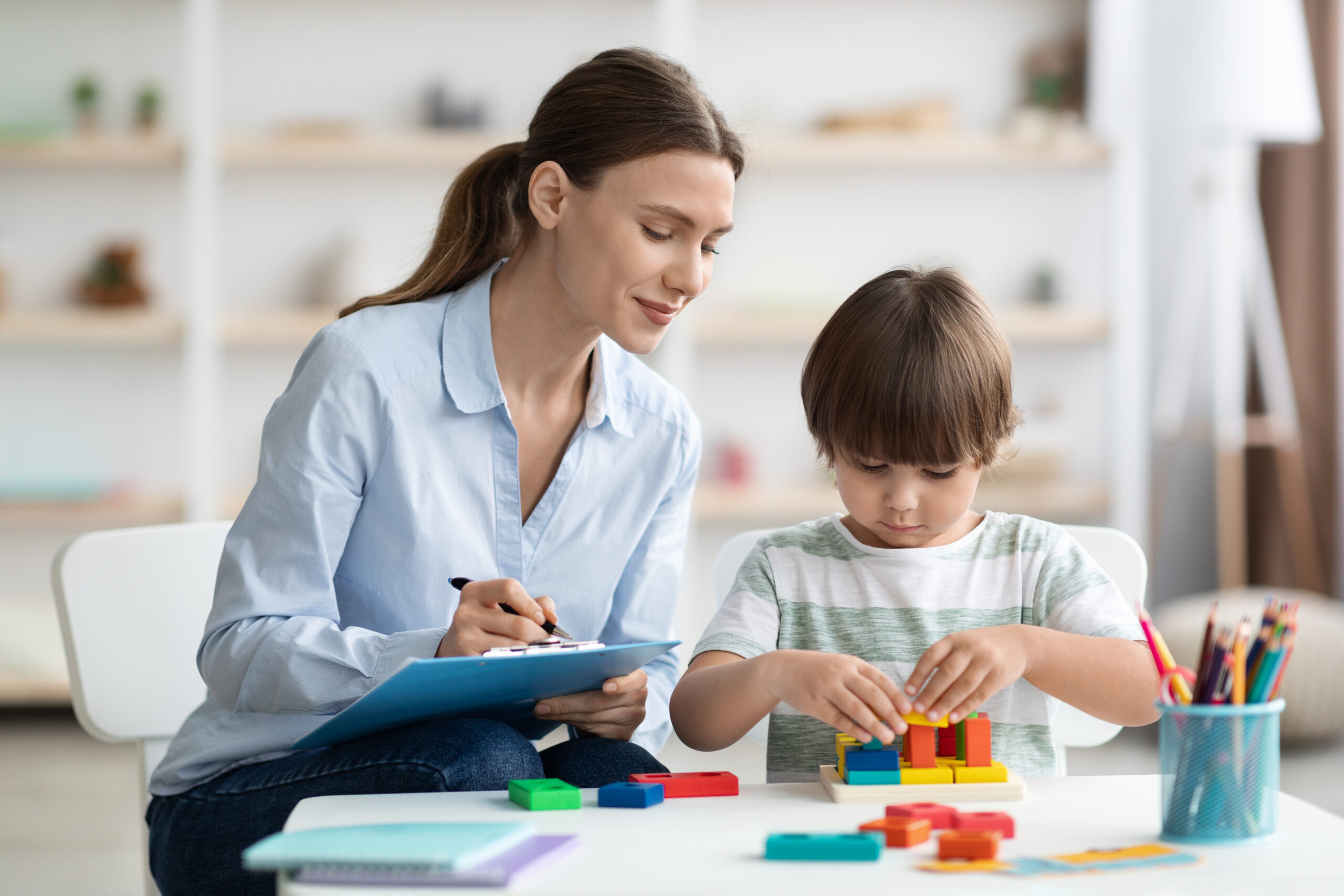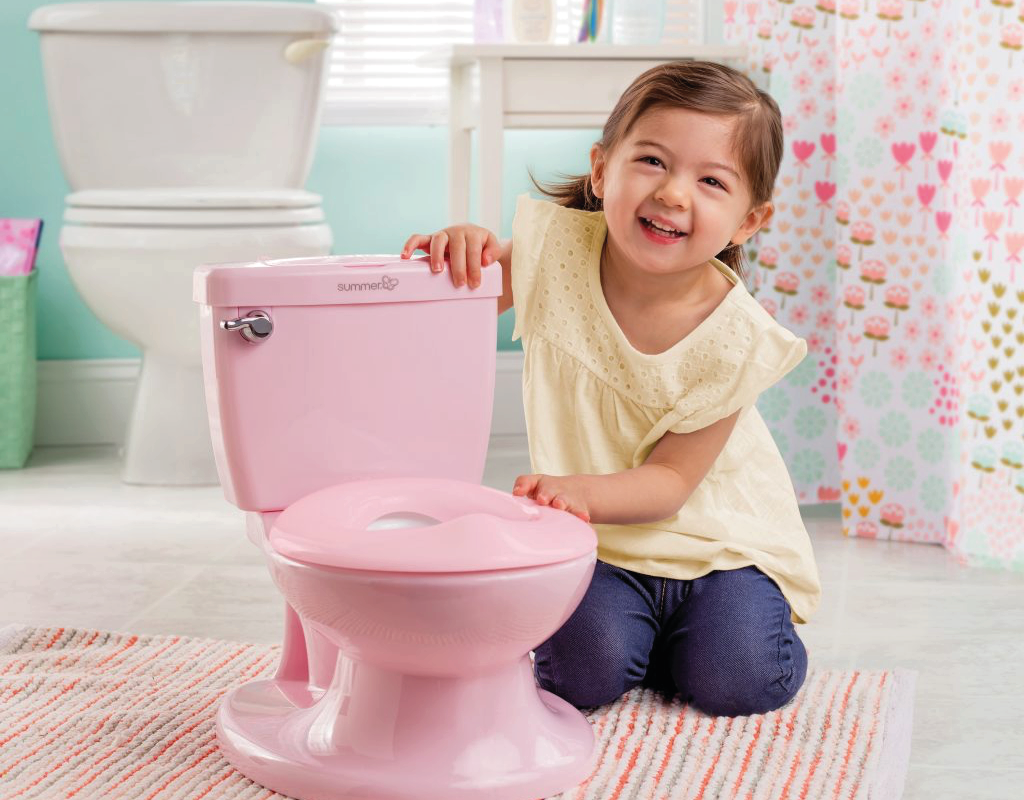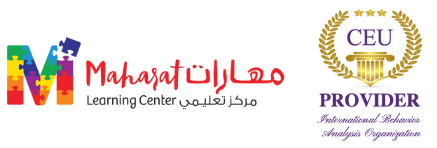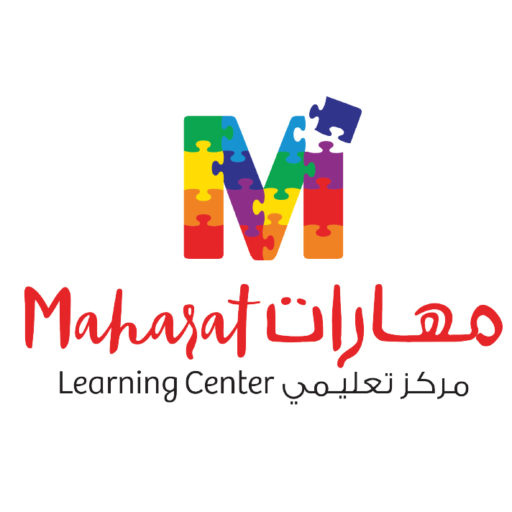
Applied Behavior Analysis (ABA)
Applied Behavior Analysis (ABA) is a therapy based on the science of learning and behaviour to improve social, communication, and academic skills through reinforcement strategies. Interventions based on applied behaviour analysis have been shown to be effective for children with a wide range of cognitive, adaptive, and functional abilities.
At Maharat Learning Center, we employ ABA therapy in conjunction with technology to provide children and young people with the skills they need to effect meaningful and positive change in behaviour and reach their maximum potential.
ABA Therapy
Applied Behaviour Analysis therapy involves multiples techniques for understanding and modifying behaviour. We offer:
An individualized treatment plan to meet the specific needs of your child
Services at the centre, in schools, nurseries, in the community or at your home
One-to-one therapy or small group settings
ABA Programs
Our programs are designed and directly supervised by a qualified and licensed Behaviour analyst (BCBA). Following a detailed assessment of your child’s abilities, needs, interests, preferences, and your family environment, we develop a program that includes specific therapy objectives and treatment goals. Goals can cover a wide range of skill areas, such as:
Behavior Interventions
As part of ABA therapy, different types of interventions can be implemented. At Maharat, we provide a comprehensive treatment program that encompasses a variety of effective techniques to help your child develop skills to succeed at school and in the community.
Assistive Technology
Improves the child’s skills through learning and game apps, digital timers, and visual schedules, which can provide a pathway to being more independent.
Theory of Mind
Develops the ability to recognize and comprehend other people’s ideas, beliefs, wants, and intentions in order to make sense of their behaviour.
Executive Functioning
Techniques focus on developing executive functioning skills which include self-awareness and inhibition, attention to task, organization, problem solving, time management, and emotional self-regulation.
Discrete Trial Teaching
Structured ABA strategy that breaks skills into small, “discrete” components and teaches those smaller sub-skills individually.
Natural Environment Teaching
Instructions are driven by the child’s motivation and carried out in a naturalistic (learning through play) or ‘real-life’ setting
Verbal Behavior
Teaches language and communication by connecting the meaning of words with their functions
Pivotal Response Training
Focuses on “pivotal” areas such enhancing a child’s desire to learn, initiating communication, and monitoring their own behaviour
Prompting and Fading
In prompting, techniques are used to encourage right responses, whereas fading involves gradually decreasing the prompt as the individual is accustomed to responding correctly
Picture Exchange Communication System
Enables the learner to communicate with parents, caregivers, and teachers through visual symbols such as pictures, symbols, words, or photographs
Intensive Interventions

Feeding Therapy
Feeding therapy can encourage your child to eat more nutritious, well-balanced meals by developing their relationship with food and eating in general. Therapy can expand your child’s diet and modify poor eating and feeding habits. Therefore, feeding therapy can significantly help to improve your child’s physical health and promote long-term healthy habits.
We will begin with an assessment to identify the specific causes for your child’s feeding and eating challenges. Food allergies and sensitivities, reflux, and gastrointestinal disorders should be addressed first. Our therapists work directly with parents and caregivers to train them how to increase behaviours related to food acceptance, decrease behaviours related to food refusal using principles of Applied Behavior Analysis (ABA). Feeding therapy can also be delivered as part of a comprehensive treatment plan and as part of multidisciplinary therapy.
Feeding therapy can help your child to:
Improve self-feeding abilities.
Try and eat new foods.
Learn to sit appropriately for meals.
Increase food consumption.
Reduce tantrums and poor eating habits.
Toilet Training
For all children, learning how to use the toilet is a crucial developmental skill. There may be additional challenges for some children who have behavioural issues or developmental disorders, and toilet training can become a stressful and time-consuming process.
As children of determination may not exhibit clear signs of readiness, it can be difficult to determine where to begin. Toilet training can also be daunting to fit into a demanding family routine. However, children with additional needs can benefit from a more organized and systematic approach to toilet training.
Our professionals who are experienced with toilet training can help you in addressing the challenges, recommendations on diet and fluids and setting up an individualised toileting program for your child.

International Programs

Remote Supervision
Through our Remote Supervision Program, we provide ABA sessions and training courses to our international clients. We offer ABA Program instruction and supervision, either virtually or in person in Dubai, and parents or therapists can implement the program at home. We hold quarterly supervision meetings for parents/therapists to update programs, receive additional training, and discuss any concerns or questions they may have. Our training includes an introduction to ABA, design and implementation of the child's individualized plan, and demonstration of behavioural/educational intervention techniques.







